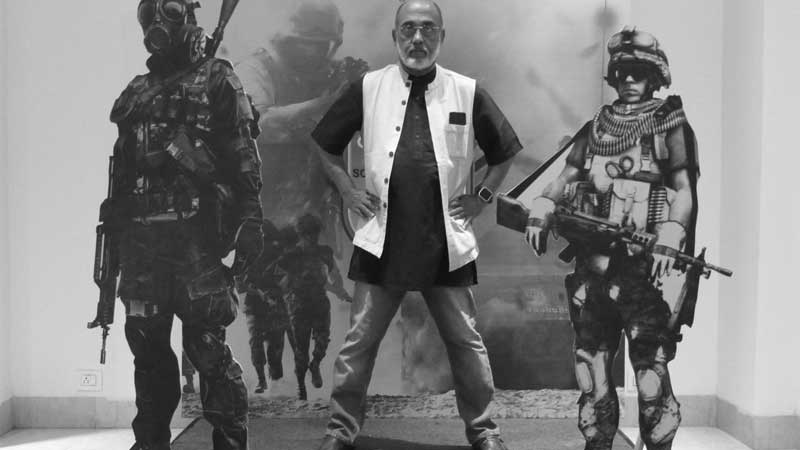During and after the pandemic there is the certainty that many organizations will allow or ask employees to work from home. There is also the certainty that several tasks and team projects will require people to come together and interact face to face. This new reality will call for an adaptation and redefinition of team culture as is currently understood and practised by most organizations. Here are a few thoughts from the perspective of the instinctive team and leadership dynamics experienced through “CorporateTheatre”:
Productivity: Some studies have shown that productivity can be sustained or even improved in some cases when working from home. However, it is likely that a lack of routine and workplace rituals that compartmentalize work time as different from personal time could lead to an erosion in productive time and energy. Leaders will need to ensure that everyone is clear about the goal, the deadlines for various tasks contributing to the goal, individual roles and each other’s roles. It could also help to kickstart the day or week with an online team meeting, however brief, to update each other on the progress achieved in the previous day or week, immediate priorities, and help or support needed or available. Successes, even minor ones need to be applauded and celebrated. Any corrections or reprimands should ideally be done on a one-on-one basis between the leader and the employee concerned.
Privacy: When correcting an employee or questioning the delivery of a task, there should be a high level of sensitivity. Many homes may not have a private space for employees to isolate themselves during their work hours. A parent or spouse or child unwittingly listening in and seeing their loved one being reprimanded or questioned, could find it disturbing. It could be even more traumatic for the employee concerned.
Mental Health: Most of us enjoy meeting up in the office at the start of the workday, exchanging personal as well as professional notes, tea-time together, lunch together, even occasional meetings, and celebrations. When these are missing, and when employees, along with their work also have to take care of responsibilities on the home front, they could be subjected to undue pressure. HR and Leadership must be extra sensitive towards ensuring that employees have a conducive working infrastructure in terms of ergonomic furniture, internet connections, and privacy, especially when discussing sensitive matters regarding performance. Counselling sessions may be required for some who may not be able to immediately handle the pressure of switching to a new mode of working.
Body Language cues: When interacting in the conventional office environment, people are able to see each other’s body language and energy patterns. Working from home makes it more difficult to sense a person’s energy levels, motivational levels, moods, attitude. It is vital to sensitize the teams to body language so that they can ‘hear the unspoken’ and take necessary action to keep themselves and the team positive, energized, clear, and committed.
Communication: Interacting face to face makes communication more direct, whereas interacting online on a screen with many faces and fluctuating signals calls for greater focus. We must free our faces and use lip movements and facial expressions that make our words clearer and amplify the content. We will also need to be completely available in the moment irrespective of distractions around.
In terms of communication, it is also important that everyone is an active participant and not just an observer. The moderator or leader of the discussion should facilitate everyone’s sharing of their opinion. Else over a period of time, some may become passive observers who do not contribute much to the team’s creative energy.
Trust: When we cannot directly see what each one is doing or contributing towards the team’s success, there is the possibility of distrust as the thought arises that others may not be putting in as much time and effort as I am. As defined in “CorporateTheatre” workshops, trust in a team need not mean trust in each other as people. That would definitely be a bonus, but it is hard to create, and is not essential. More importantly, it is trust in each other’s clarity and commitment and knowing that it is the same as mine, because we can only win together. If you don’t perform well, I lose. If I don’t perform well you lose. HR and Leadership are responsible for creating this environment of trust and mutual interdependence through appropriate team definitions, goal definitions, and appraisal and reward policies that prioritize and reward collaboration over competition within a team. Details of the ingredients that make up this environment are experientially defined in the workshop.
Leadership: The post-pandemic work culture will call for exemplary leadership where productivity is motivated and assessed not by monitoring the time spent online, but by each one’s clarity of and commitment to, the goal of the team, and the vision of the organization. A leader whose online presence can radiate this passion, energy, clarity, and commitment will be able to make the most of the freedom and flexibility offered by working from home. Actors’ tools that enable the definition and projection of the character can be of immense help in empowering the leadership presence and personality required to optimize the post-pandemic work culture and environment.

